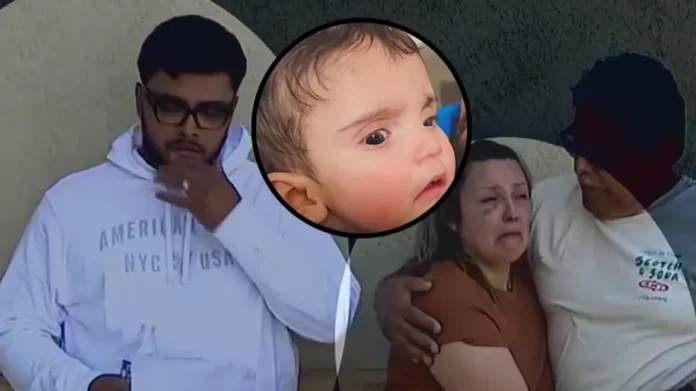The Emmanuel Haro tragedy has taken yet another horrifying twist — and this time, the outrage isn’t only aimed at the parents. Experts now say the justice system itself may have blood on its hands.
⚖️ A Chilling Reminder of a Past Crime
Long before baby Emmanuel’s name made headlines, his father, 32-year-old Jake Haro, had already left another child permanently shattered.
In 2023, Jake was accused of brutally abusing his newborn daughter — a baby girl just 10 weeks old. Doctors testified the little girl suffered brain bleeding, multiple broken bones, and irreversible damage that left her bedridden for life.
And yet — despite the gruesome injuries — Jake never served a single day in prison. Instead, he was handed a light sentence: probation, community service, and four years of supervision.
😱 “A Systemic Failure”
Now, in the wake of Emmanuel’s suspected murder, legal analysts are calling this a catastrophic failure.
One veteran investigator, speaking on condition of anonymity, did not mince words:
“If that man had been behind bars where he belonged, baby Emmanuel would still be alive today. The system failed — and it cost a child his life.”
💥 Public Fury Erupts
News of Jake’s shocking escape from prison time has sparked a wave of anger across California and beyond. Parents, advocates, and even politicians are demanding answers:
-
Why was a man capable of such violence allowed to go home?
-
How could a court overlook the severity of a crime that left a child permanently disabled?
-
And how many other children will pay the price for lenient sentences like this?
🔎 A Deadly Pattern?
Prosecutors now believe Emmanuel endured the same pattern of abuse as his half-sister — but this time, he didn’t survive.
“History repeated itself,” another investigator said grimly. “Except this time, it ended in death.”
❓ Questions That Won’t Go Away
-
Should the judge who handed down Jake’s light sentence be held accountable?
-
Did the justice system effectively enable a child killer to walk free?
-
And could Emmanuel’s death finally spark a national reckoning on how courts handle child abuse cases?
As the case unfolds, one thing is painfully clear: baby Emmanuel’s blood may not only be on the hands of his parents — but also on a system that looked the other way.
